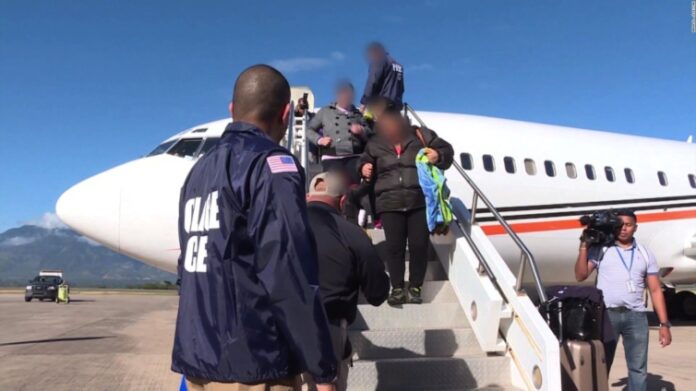International Affairs and Political Analyst Nana Karikari has warned that Ghana could face legal, security, and economic challenges as it prepares to receive 40 more deportees from the United States.
Speaking on JoyNews’ Up Front on Wednesday, Madam Karikari said the lack of clarity about the deportees’ backgrounds raises serious concerns.
“We do not know the background of these deportees, or even if we do, we haven’t really examined it closely. Are they criminals? Do they have jobs? What exactly are these deportees coming to Ghana for?” she questioned.
She cautioned that Ghana could face lawsuits from deportees over human rights violations, which could damage the country’s foreign policy image and international reputation.
Madam Karikari also noted that the deportees may compete with locals for jobs, putting additional strain on the economy, while facing challenges integrating into Ghanaian society.
She added that reactions in the United States have been mixed. Some Ghanaians welcome the return, citing family ties and the comfort of home, while others are unsettled, particularly those who have established families and livelihoods in the U.S.
While Ghana is regarded as a peaceful and safe country, Madam Karikari stressed that hosting deportees must be carefully managed.
“Ghana could face legal actions from the deportees, and that wouldn’t be a good look for our foreign policy and international reputation. We also need to consider the economic strain on Ghanaians, as they will now be competing with these deportees for jobs. Then there’s cultural adjustment and integration into Ghanaian society. All these are valid concerns that the government should address,” she said.
The Foreign Affairs Minister, Samuel Okudzeto Ablakwa, had earlier revealed that 40 deportees are expected from the U.S. in the coming weeks.
His disclosure follows Minority criticism of the government’s earlier acceptance of 14 deportees, with accusations that officials bypassed parliamentary approval. The government, however, maintains that the arrangement is governed by a Memorandum of Understanding (MoU) with the U.S., which does not require ratification.
Source: Prince Adu Owusu
ALSO READ:



